E-Sabong in the Philippines: How an Online Betting Craze Sparked a National Crisis
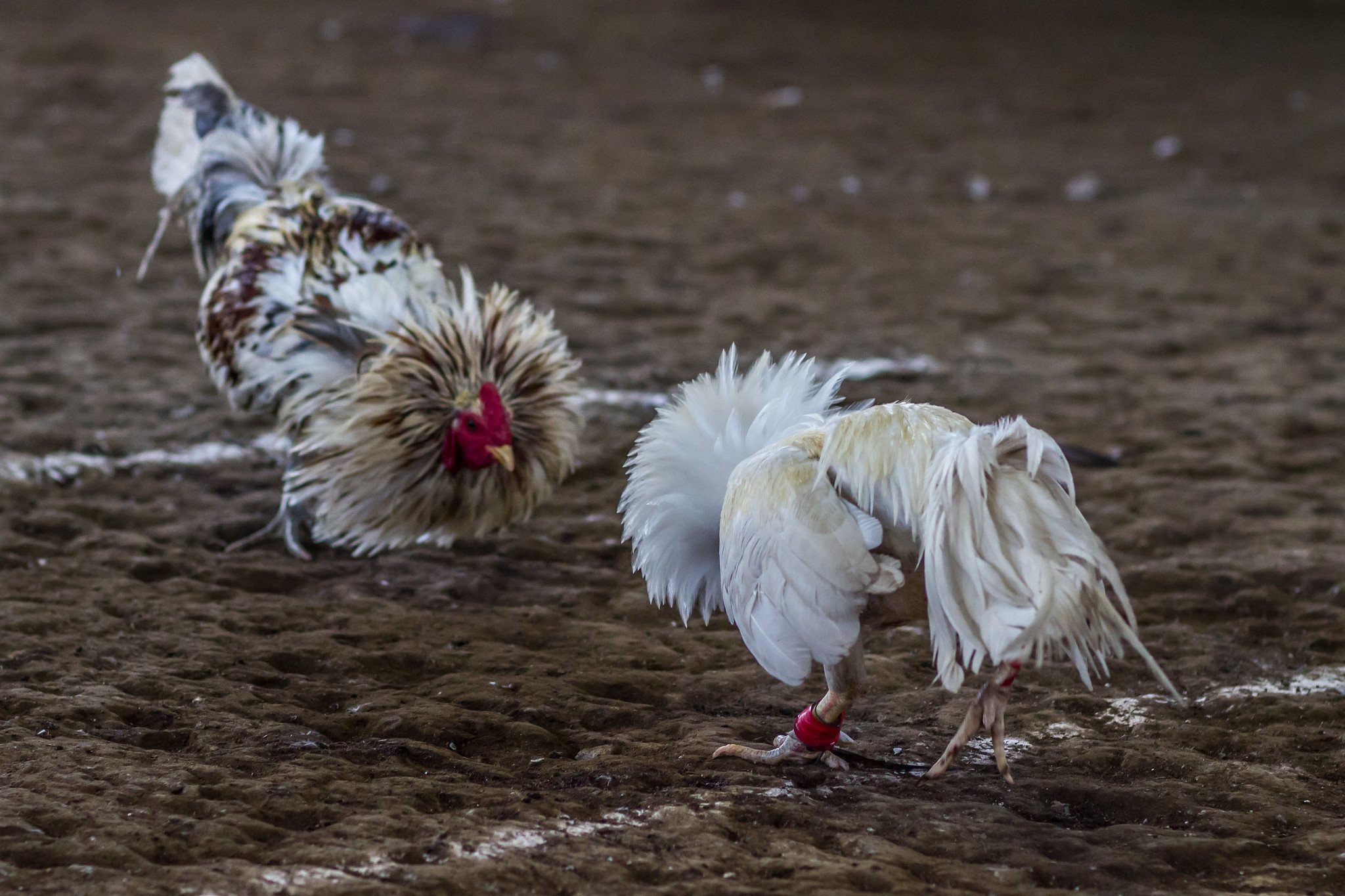
The Explosive Growth and Dark Downturn of E-Sabong
E-sabong, the practice of betting on live-streamed cockfights via online platforms, became a massive phenomenon during the COVID-19 pandemic in the Philippines. While this digital twist on a traditional pastime generated significant revenue and kept the gambling industry afloat amid strict lockdowns, it also triggered a surge in crime, addiction, and social unrest. Rampant debt, desperate criminal acts, and governmental indecision were the hallmarks of e-sabong’s rise. Even after its official shutdown, the repercussions of the craze continue to echo across the country, with lingering concerns that this high-risk form of gambling could someday return.
Cockfighting: A Deep-Rooted Tradition Meets Modern Technology
The sport of cockfighting, known locally as sabong, has been embedded in Filipino culture for centuries. Early European explorers, like Antonio Pigafetta in the early 1500s, recorded witnessing these fiercely contested matches. Sabong is more than a simple pastime-it’s credited with sowing the seeds of the country’s deep-rooted gambling culture.
Over time, gambling in the Philippines has expanded into government-regulated lotteries, sweepstakes, and number games, often targeting international visitors, especially from China. The rise of Philippine Offshore Gaming Operators (POGOs) created lucrative new online betting opportunities for foreign players.

A Philippine Offshore Gaming Operator website. [Image: Rappler via Casino.org News)
However, the pandemic severely impacted the gambling sector by restricting travel, slashing tourism, and forcing the shutdown of physical venues-including cockfighting arenas. The Philippine Amusement and Gaming Corporation (PAGCOR) estimated monthly losses of P5-6 billion ($88.5-$106 million) during lockdowns.
To counteract these losses and provide entertainment for Filipinos confined at home, the government authorized online gambling, leading many to flock to e-sabong. With the ability to wager using only a smartphone, around-the-clock access, and low minimum bets (as little as P100, or about $1.78), participation skyrocketed. By late 2021, the e-sabong community was believed to number over 5 million.
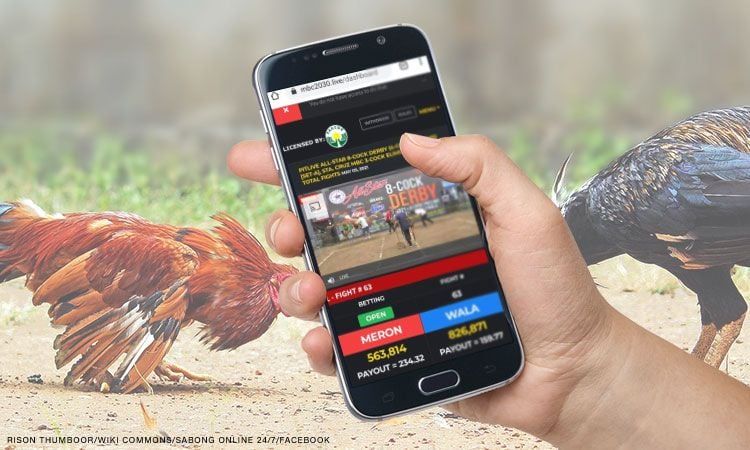
E-sabong. [Image: CNN Philippines]
Widespread Addiction and Its Steep Social Price
An in-depth study published during the pandemic revealed that half of e-sabong participants gambled between three and five hours daily, fueling a nationwide addiction crisis. Many lost everything, selling their possessions and even resorting to extreme measures to satisfy mounting debts. Headlines documented desperate acts-including police officers turning to robbery and a mother who was reportedly compelled to sell her own child to cover her losses.
JUST IN: The NBI Human Trafficking Division has rescued baby “Miracle”. The 9month old baby who was sold by her mom because of e-sabong debts. Details to follow. | via @Nikobaua
Related report: https://t.co/htIvaqulvZ pic.twitter.com/Bga0BSSipl
- ABS-CBN News (@ABSCBNNews) March 22, 2022
Additionally, the game was plagued by corruption. Numerous allegations of match fixing and betting fraud were levied against handlers, sparking violent fallouts. Since May 2021, 34 individuals linked to match fixing have been abducted-none have been located, with fears they are dead. Major gambling tycoons, including Atong Ang (who claimed to handle the vast majority of e-sabong matches), were associated with these incidents, though Ang denied any involvement.
Mounting Pressure on Government and the Road to Prohibition
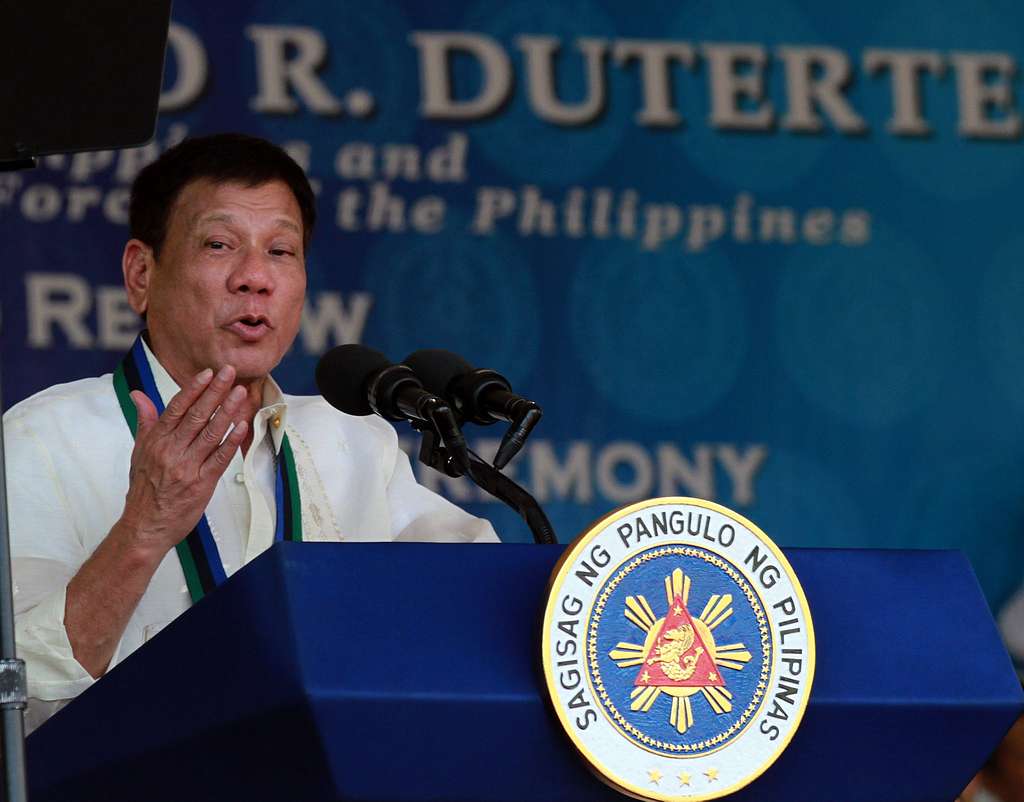
Former-President Rodrigo Duterte. [Image: PICRYL]
Then-president Rodrigo Duterte was a steadfast supporter of e-sabong while in office, emphasizing how vital the P640 million ($11.34 million) in monthly taxes was to the national budget, especially during pandemic-era hardships. These funds, according to Duterte, were allocated for public services such as healthcare, infrastructure, and education. He even cited that P100 million per month went specifically to support the Philippine General Hospital.
Duterte warned that banning the industry outright might only drive gambling activities underground and out of tax reach, fostering an environment where criminal elements could thrive.
However, as public backlash intensified, Duterte’s stance weakened. An April 2022 poll by the Department of the Interior and Local Government found that 62% of respondents favored a total ban on e-sabong, while only 4% wanted it to continue unchanged.
The Official E-Sabong Ban and Its Aftermath
On May 3, 2022, Duterte announced the immediate cessation of e-sabong operations. All licensed operators were ordered to halt bets and shut down their platforms, while banks were instructed to block any payments related to the activity. Bettors had a 30-day window to withdraw their remaining funds.
The move was prompted by disturbing government findings that linked e-sabong to a dramatic increase in violent crime, abductions, and a public health crisis around gambling debt.
Duterte admitted, “We are only after the tax collection, but after the stories I’ve heard, it was very loud and clear to me that it was working against our values. It is impacting people and their families.” By June, he publicly expressed regret for not recognizing the damaging consequences of e-sabong sooner.
A month later, Duterte left office, succeeded by President Ferdinand “Bongbong” Marcos Jr. and Vice President Sara Duterte. Marcos Jr., a critic of e-sabong even before its ban, has made no moves to restore it. Illegal e-sabong persists, however, with the government facing challenges in curbing online betting sites-some of which remain accessible through social media platforms.
The Ongoing Legacy of Sabong
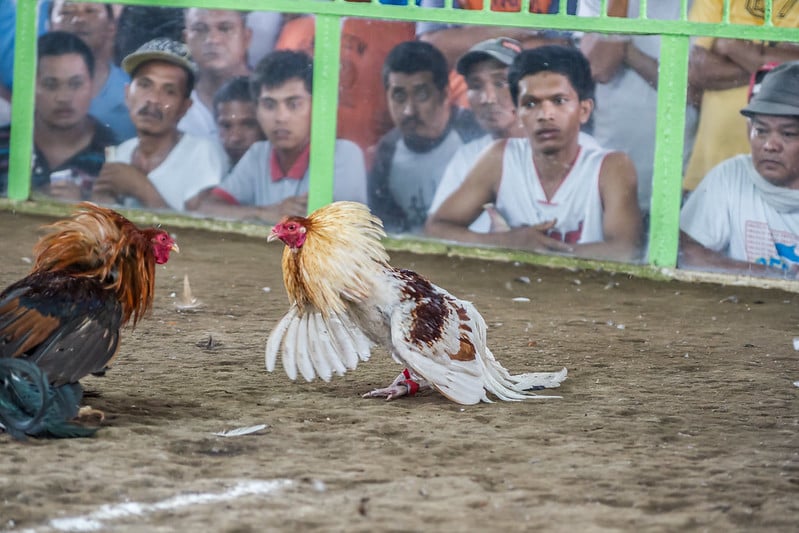
Image: Adam Cohn/Flickr
Traditional cockfighting is still recognized as both a legal and vital component of Filipino culture. The industry is reportedly worth around $1 billion, but is strictly regulated; betting is allowed only on Sundays, public holidays, and during town festivities. This limited schedule curbs the 24/7 access that led to such rampant addiction during the e-sabong era.
The cultural significance of sabong is even enshrined in Philippine law, which describes it as a major vehicle for preserving heritage and enhancing national identity. The sport cuts across social classes and is considered a grand equalizer-a metaphor for resilience in Filipino society.
The centerpiece of the cockfighting calendar is the World Slasher Cup, nicknamed the “Olympics of Cockfighting,” hosted for a week at Manila’s storied Araneta Coliseum. Breeders and aficionados from all over the globe gather to compete for top honors.

Image: Smart Araneta Coliseum
Nevertheless, cockfighting is deeply polarizing. Most countries have outlawed the practice, and animal rights organizations label it inhumane. Reports of breeding abuses and the use of performance-enhancing drugs persist. The sport also occasionally poses risks to humans, such as the death of a police officer accidentally impaled by a rooster during a raid on an illegal fight.
The Future of E-Sabong: Could It Return?
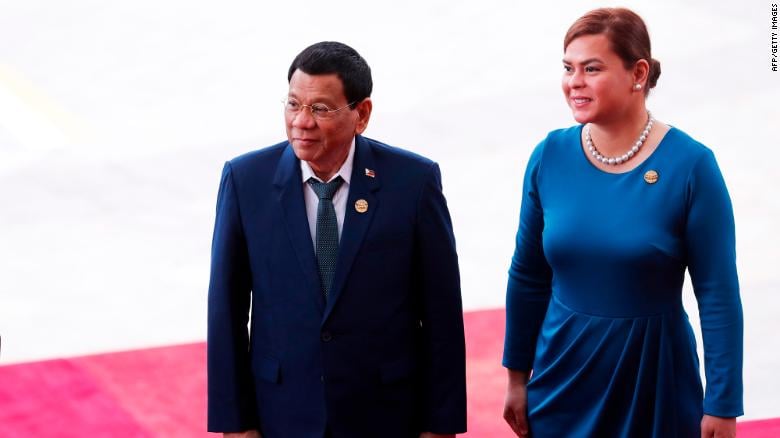
Rodrigo Duterte and his daughter Sara Duterte. [Image: CNN]
Since the leadership change in 2022, discussion around e-sabong’s possible revival has largely faded from the national conversation. Yet, some major industry figures remain convinced that the lure of its lucrative revenues may prove irresistible in the future.
Gambling magnate Atong Ang has publicly predicted e-sabong’s comeback. Given former Davao City Mayor (and current Vice President) Sara Duterte’s past support for the practice, some speculate that if she ever ascends to the presidency, there may be renewed pressure to bring e-sabong back-raising questions over how the Philippines will continue to balance financial incentives, social responsibility, and cultural tradition in the realm of gambling.
Lead image: Adam Cohn/Flickr













